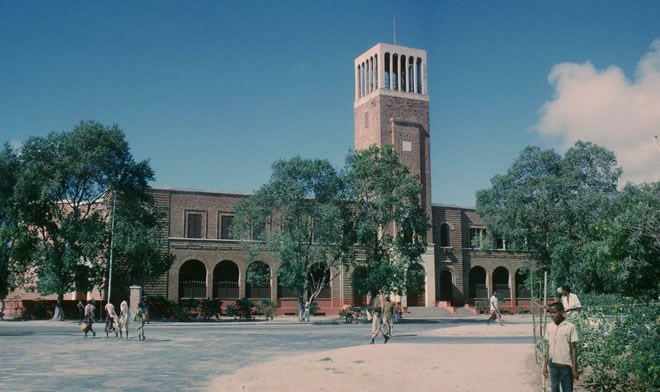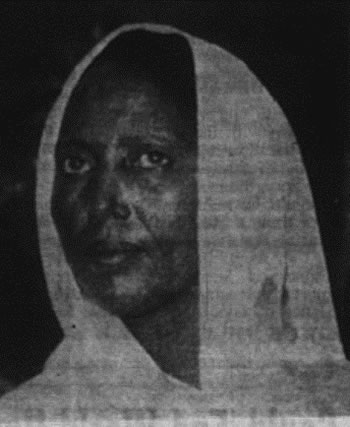by Mohamed I. Trunji
Thursday, October 10, 2019

Part Four
“Politics in the Horn, like the politics of industrial societies, consist of competing among groups for influence in the management of public affairs. The distinction lies in the character of the groups. In developed industrial societies the competing groups are made of individuals united by common economic or social interests or perhaps a common ideology. Among the Somalis they are determined by common ancestry” (Saadia Touval1960)
Under Law No. 13 of June 6, 1968,’Political Elections and Local Council Elections’, the 1969 elections, the third and the last elections during the civilian administrations, were held in March of that year, and for the first time combined with the Municipal elections.
The government was under the leadership of Mohamed Ibrahim Egal, the first northern Premier after independence. His Minister of Interior was Yassin Nour Hassan, a dynamic 40 years old MP from Galcaio.
The major aspect of these elections was, without doubt, the appearance of a mass of small political parties. Whereas twenty-one political parries had contested the 1964 parliamentary elections, this time sixty-four parties, representing sixty-four clans and sub-clans, most of which created just before the poll and all seeking a slice of the national pie, entered the field, with 2,214 candidates for the 123 available seats. Most of the organizations contending for the election as political parties were not in reality parties in the true sense of the word, but rather temporary clan groupings, devoid of any clear political programme, formed solely for the purpose of putting up candidates with the ultimate aim of joining the ruling party after the elections
End of the proportional system
The electoral law had introduced three major innovations with respect to 1964 electoral law:
(a) The system of proportional representation was modified by assigning each constituency an electoral quotient determined by dividing the total number of votes cast by the number of seats assigned to each constituency. If after this operation, there remain any seats to be filled, a new distribution is made based on a second quotient calculated from the total of the remaining votes of each list, excluding those which failed to obtain a number of votes equal to the first quotient. The government claimed that changes to the system were designed to discourage the proliferation of political parties.
(b) Public servants, civilians or otherwise, who wished to stand as candidates were forbidden to stand for election, unless they resigned from government employment at least 180 days before the date of voting. In 1964, instead, civil servants were allowed to stand for elective office; if successful, they were placed on leave without pay for the duration of their elective office.
(c) The security deposit for the election of MPs was raised from Sh.So1, 000 in 1964, to ShSo 5,000, to be forfeited and credited to State revenue in case the list failed to obtain the necessary votes for the election of at least one deputy.
Electoral Districts
With the upgrading of the desolate village of Jerriban (Mudugh), to electoral district, the country was divided in 48 electoral districts, one more than the 1964 political elections. In fact, few months ahead of the elections, Yassin Nour Hassan, using his influence as Minister, created Jerriban as his own power base, detaching surprisingly two seats from the densely populated electoral district of Galcaio, the Provincial capital of Mudugh. Five electoral districts involving 12 seats were SYL”unopposed”: Aden Yaval, Bender Beila, Bur Hakaba, Jerriban and Zeila. There was a reduction in the number of people who voted compared to 1964 parliamentary elections. 879,554 cast their vote in 1969 compared with 913,069 in 1964 at 1345 polling booths throughout the republic to elect 111 deputies and 990 municipal councilors to govern the country for five years ending in 1974. (Somali News April 11, 1969)
The history book may remember the 1969 political elections as the worst ever held in the country in terms of irregularities and electoral fraud. The government rallied all its resources and “the much respected Police Commandeer, General Mohamed Abshir, resigned from his post, refusing to agree that police transport facilities should be employed to carry SYL voters to the polling station” (MI Lewis, 2002) In anticipation of the elections, the government appointed new regional governors and district commissioners. Some of the new appointees, particularly the two Governors of Burao and Hargeisa, were widely seen as mercenaries who were appointed to rig the elections for the candidates favoured by the government. Of the 63 parties which contested the elections, only 27 were successful in gaining seats for their representatives.
The “carefully managed” vote gave Egal’s SYL party 73 seats, (about 90% of the seats of the Parliament), followed by the SNC with 11 seats, SANU 6, HDMS 3 and PLGS 3. The remaining 22 small parties managed to obtain 1 or 2 seats each totaling 27 seats (Somali News April 4, 1969)
A single-member opposition
Somalis had grown used to electoral irregularities since the time of United Nation trusteeship administration, but were still shocked by the scale of the vote rigging in 1969, the likes of which had never been experienced in the past. A rash for the SYL bandwagon began soon after the election results were announced. In fact, within weeks from the election, all but one of the new MPs who were not members of the SYL had joined the ruling party: a total of 60 new deputies elected from a myriad of small parties. All were attracted by the advantage of being inside and not outside the ruling party. The single opposition member who resisted the temptation to join, or rather, to rejoin his former party, was Abdirazak Haji Hussein, a former Prime Minister, who became as one author put it: “a rare example of democracy” (Tripodi 1999) About 63% of the deputies of the last Assembly was not re-elected, Among those not re-elected there were no less than four full Ministers and four Undersecretaries.
A woman stood for Parliament

Haua Auale Abtidon stood election for Elbur
|
Our history book may remember the 1969 political elections as the most fraudulent exercise ever held in the country during the civilian administrations, but history may also remember the 1969 as a year a woman first stood for Parliament; as the year the name of Haua Auale, better known as Haua Yareey has become a household word. “Unlike other candidates who competed and failed and who only three weeks after the event, are sinking into obscurity, Haua Yareey remains a symbol and an inspiration to other women who, until now, had considered their chances to gain the National Assembly an ideal dream”, commented the Somali News (Somali News April 18, 1968)
Six months before Election Day, Haua resigned her job, a job she had been doing for 9 years as nurse at Mogadiscio De Martino Hospital. Haua decided to campaign for herself in 1969 to show to the Somali women, to let them know that there is a way for them and that the laws of the country do not differentiate between sexes. She wanted to illustrate to the population that a woman can give as much to the nation as a man, and can also shoulder leadership.
The unexpected Military Cuop d’Etat
In the absence of a clear political programme in election times, Somalis emerged from the 1969 election far more polarized than ever before. Much of the hope with which Somalis greeted independence in 1960 had evaporated: too little had changed in the better. As widely anticipated, following the elections of March 1969, Egal had been designated, for the second time, to form a government. Mohamed Ibrahim. Egal could have gone down in history either as a leader who guided Somalia towards stability, or a man who scotched its chance for better future. Sadly he chose the infamy and displayed some of his southern brother’s ugly traits. Instead of consolidating the impartiality of the 1959 parliamentary elections in Somaliland Protectorate, Egal succumbed to the mal practice left behind by the Trusteeship regime in the south. He handled the elections clumsily by just blindly following in the footsteps of his southern big brothers. The question that arouse, however, was whether a poll victory obtained by unethical means would enable the ruling elite to govern until the end of the legislature set for 1974, or whether it would throw the country into tribal enmity and chaos. Neither of these two scenario happened as, barely six months since the elections were held, the entire Somali political landscape was suddenly thrown in turmoil by the military, and Mr. Egal and his Cabinet Ministers had little time to enjoy the stolen electoral victory.
M. Trunji
E-mail:
[email protected]